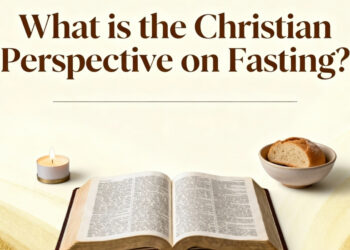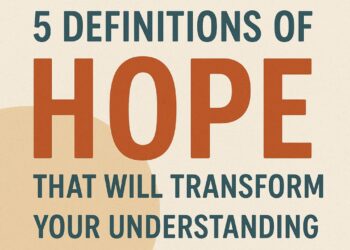No products in the cart.
What Is The Significance Of Easter For Christians?
This post contains paid and/or affiliate links. I make a small commission at no extra cost to you. Please see our Privacy Policy.
Easter is a key holiday for Christians worldwide. It celebrates Jesus Christ’s Resurrection, three days after His death. This event is filled with joy and marks Jesus’ victory over death.
Easter is deeply meaningful for Christians. It shows Jesus’s rise from the dead, proving His teachings. Without this, there would be no Christian faith. It reminds us of Jesus’ sacrifice and the promise of eternal life.
Over time, Easter has gained many traditions and symbols. Easter eggs symbolize new life, while the Easter Bunny brings spring. These customs blend with the holiday’s religious meaning.
Timeline of Holy Week Leading to Easter
| Day | Event | Description |
|---|---|---|
| Palm Sunday | Jesus enters Jerusalem | Crowds welcome Him with palm branches |
| Maundy Thursday | The Last Supper | Jesus shares final meal with disciples |
| Good Friday | Crucifixion | Jesus is crucified and buried |
| Holy Saturday | Time of Waiting | Disciples mourn, the tomb is sealed |
| Easter Sunday | Resurrection | Jesus rises from the dead |
Key Takeaways:
- Easter is a central holiday in Christianity, celebrating the Resurrection of Jesus Christ.
- The Resurrection is the foundation of the Christian faith and affirms Jesus as the Messiah and Son of God.
- Easter traditions, such as eggs and the Easter Bunny, have become part of the religious observance.
- Easter symbolizes victory over death, the forgiveness of sins, and the promise of eternal life.
- During Easter, Christians reflect on the significance of Jesus’ sacrifice and renew their faith.

The Christian Meaning of Easter
The significance of Easter for Christians is rooted in Jesus’ resurrection. This event proves Jesus is the Son of God and fulfills His teachings. The resurrection is the heart of the Christian message.
Jesus’ resurrection turned His followers into bold witnesses. They had doubted but became devoted to sharing Jesus’ victory. Their experiences with the risen Christ confirmed Jesus as the Messiah.
The resurrection shows Jesus’ triumph over sin and death. It offers redemption and eternal life to believers. It’s a powerful sign of God’s love and the victory of good over evil.
Easter is deeply meaningful for Christians. It celebrates Jesus’ resurrection and our hope for new life in Him. It reminds us of faith’s transformative power and the promise of eternal life.
So, let’s reflect on Easter’s Christian meaning as we celebrate. Let’s rejoice in Jesus’ resurrection, embrace His teachings, and hold onto the hope we have in Him.
Easter Traditions and Symbols
Easter is also celebrated with many traditions and symbols. These have become a big part of the holiday.
The Easter egg is a popular symbol. Eggs symbolize fertility and birth, with decorating eggs being a long-standing tradition. Decorating eggs is a cherished family activity, with many creative methods.
Religious vs. Cultural Symbols of Easter
| Symbol/Tradition | Religious Meaning | Cultural/Secular Meaning |
|---|---|---|
| The Empty Tomb | Jesus’ resurrection | Symbol of new beginnings |
| Easter Egg | New life in Christ | Fertility, Spring renewal |
| Cross | Jesus’ sacrifice and victory | Religious symbol only |
| Easter Bunny | (No biblical origin) | Joy, fertility, Springtime fun |
| Church Services | Worship & reflection | Community tradition |
The Easter Bunny is another iconic symbol. It comes from the abundance of rabbits in spring, symbolizing new life. The Easter Bunny brings joy, mainly through Easter egg hunts.
Non-religious Easter traditions have become more popular. The White House Easter Egg Roll is a big event where kids roll eggs with spoons. It’s a fun tradition that families enjoy.
Easter is also known for its commercial side, with lots of candy and cards sold. Kids love getting chocolate eggs and marshmallow treats. People send Easter cards with special messages, making the holiday more personal.
Easter, with its traditions and symbols, brings joy and renewal. It’s a time of celebration and reflection.
Conclusion
Easter is very important for Christians. It celebrates Jesus Christ’s resurrection and victory over death. It’s a time of joy, reflection, and faith renewal.
The resurrection of Jesus is key to the Christian faith. It shows His divine identity and the truth of His teachings. Jesus’ resurrection gives hope of eternal life to those who believe in Him.
Easter traditions, like eggs and the Easter Bunny, may have started in non-religious customs. But they’ve become part of the holiday’s spiritual meaning. They remind us of new life and renewal.
Attending church, going on Easter egg hunts, or just thinking about Easter’s spiritual meaning is important. This holiday is a central moment in the Christian faith. It reminds us of Jesus’ love, His resurrection, and the hope He offers to believers.













